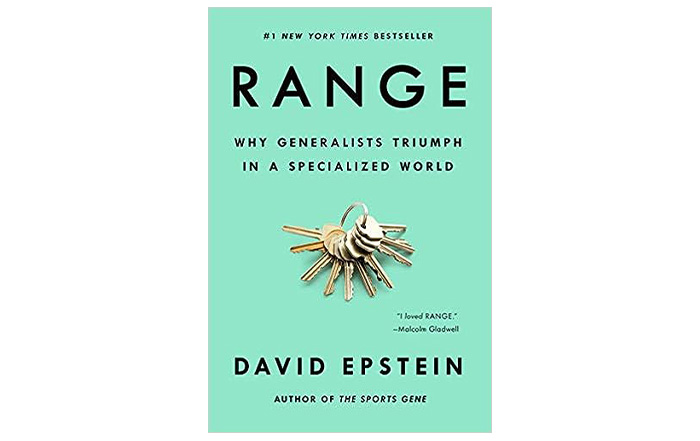Where to find this idea:
Range: Why Generalists Triumph in a Specialized World by David Epstein
Is it generalists or specialists who achieve more career success? Well, as is often the case when we try to fit people into neat little boxes, there’s not a clear-cut answer to this question.
Lately, it seems like everyone is buzzing about becoming an expert, finding a niche and acquiring skills with the 10,000-hour rule (you need 10,000 hours of deliberate practice to master a skill). But we might need a reminder that generalists play an important role in our ever-evolving world. They can see the big picture often overlooked by hyper-specialists. Their versatile knowledge and skills help them draw distant analogies from one field and use them to solve problems in another. They’re successful adapters.
Compared to machines, our greatest human strength is not narrow specialization, but the ability to broadly integrate and see beyond known patterns. We outperform machines in open-ended problems.
The 10,000-hour rule and focusing on specialization from an early age might produce world-class experts in fields like golf and chess, where there are repeating patterns and clear rules, but in many other fields, like business, science and technology, hyper-specialization can’t work alone.
In his book “Range,” David Epstein advocates for an approach that can be described as late specialization.
What if we normalize having a “sampling period” that can last for years or decades? During this period we’re generalizers. We explore different topics, experiment with working in different fields and learn different skills. Only after this (if ever), we start with technical practice and specialization. That specialization can happen in our teen years, 30s or 50s. There are many people who meander through their career, follow unusual career paths and bloom in specific fields because they carry with them a variety of knowledge. These people are often seen as anomalies. But are they?

